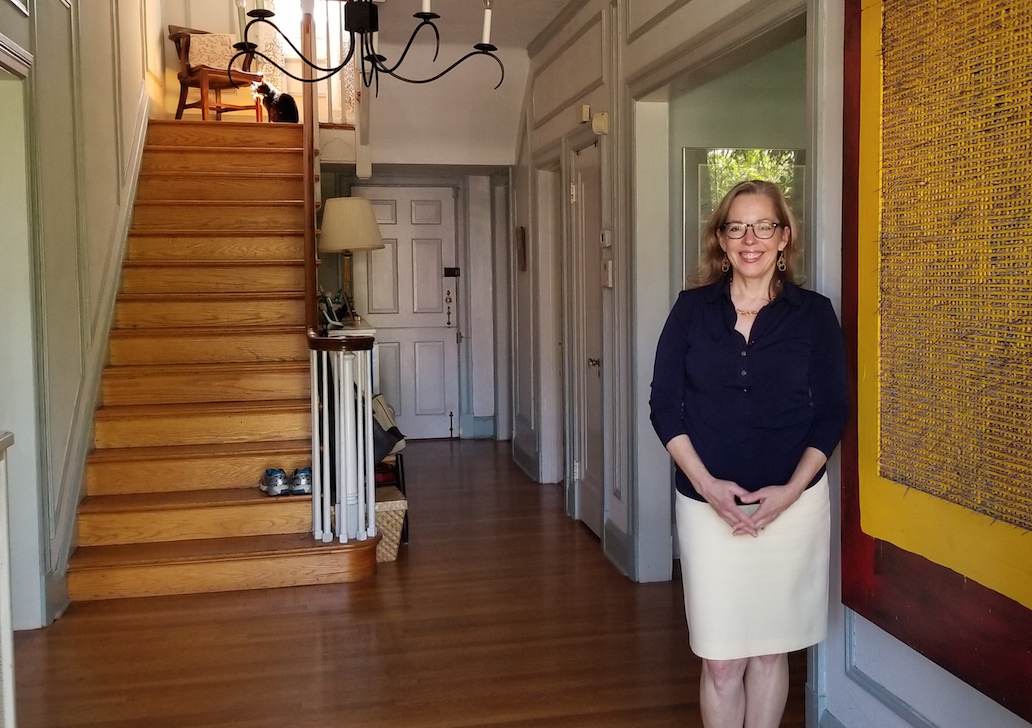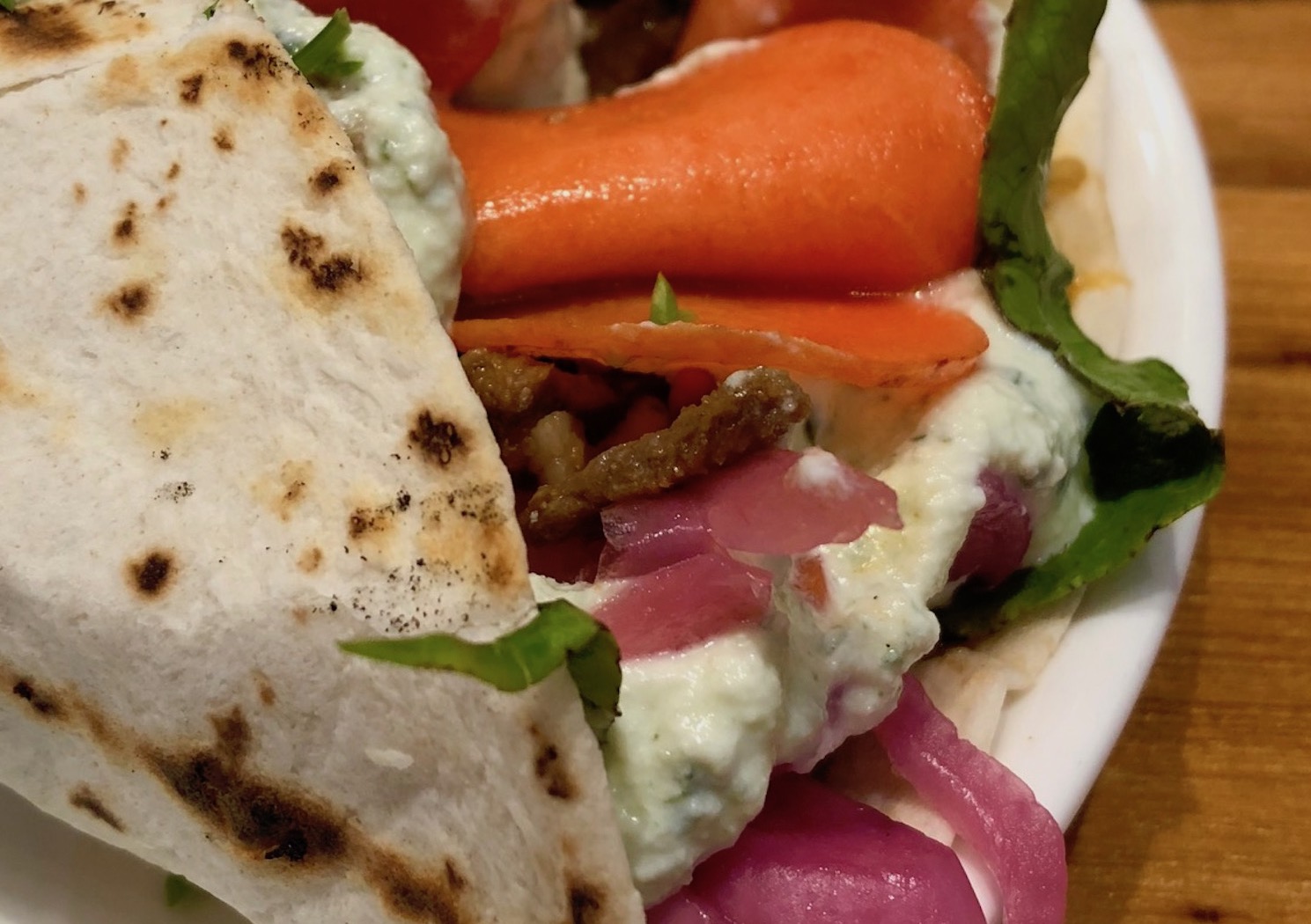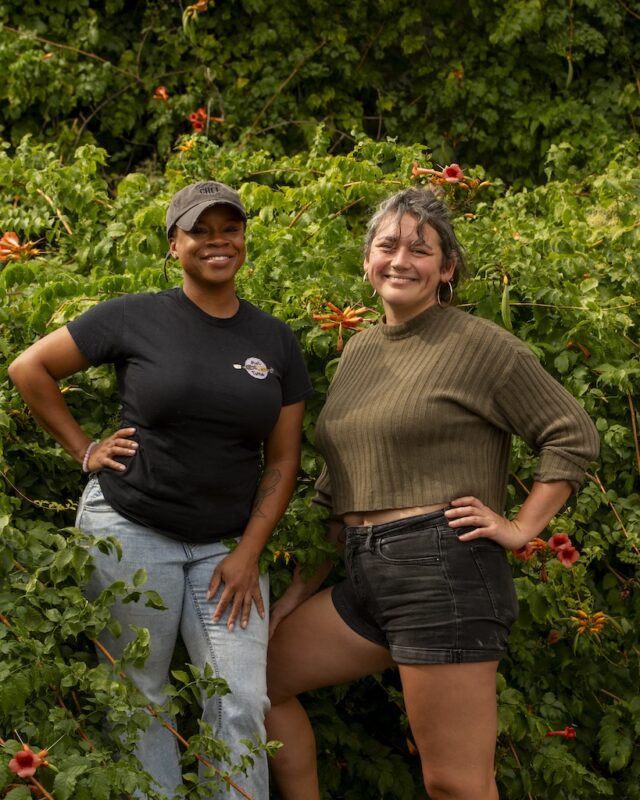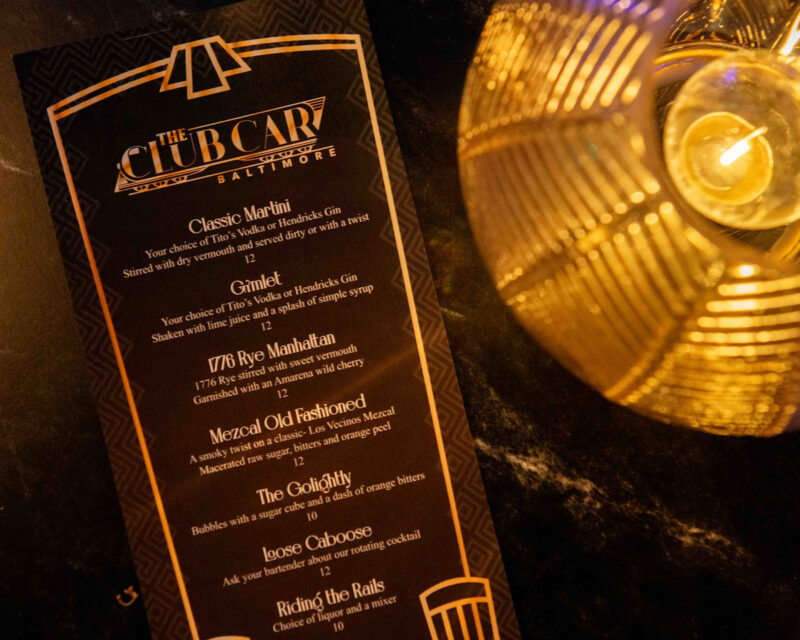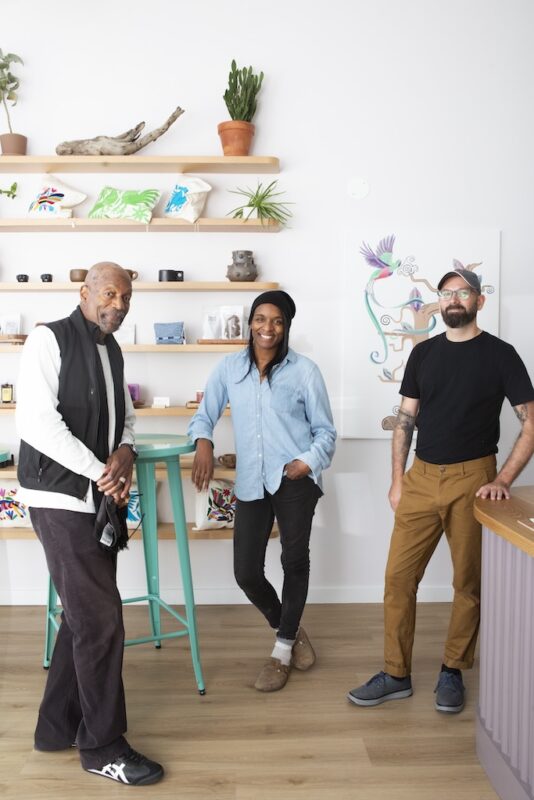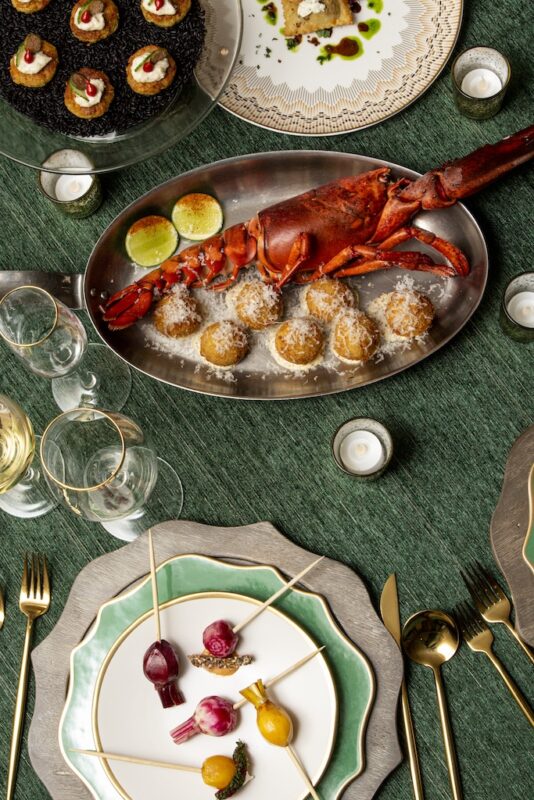Lebanese International cuisine takes root in Baltimore at Baba’s and Arba by Martha Lucius
Cuisine is definitely an art form. As ancient cooking techniques and food traditions from all corners of the world begin to take root in Baltimore, I’m seeing spice, heat, and international flavor beginning to flourish here. I grew up overseas, eating from street stands in Nigeria, Thailand, Tanzania, Germany, Saudi Arabia and India, and, as a former chef and café owner, I’ve been quietly advocating for more international cuisine. One bite of Aushuk at Helmand is probably more flavor than anything you’ve eaten in the last week; when you eat locally, it’s a joy to be transported to a different place where the food traditions are tied to one culture, and the people of one country.
Farid Salloum has run Baba’s Mediterranean Kitchen in Federal Hill since 2006 and, recently, Arba Mediterranean at R. House in Remington, serving foods based on his Lebanese and Palestinian ancestry. If you visit either location, you will be indulged in savory grilled shwarma, crispy falafel, spicy kebabs, and creamy hummus.
Over the years, Farid and I have become friends, and even shared the same chef: Ryan Scalfari. Farid and I agree—we live a parallel life. We love our customer interactions, sharing food stories and traditions, and encouraging Baltimoreans to eat locally yet internationally. I sat down with Farid to ask him more about his food, background, and love of Baltimore.

You run Baba’s and Arba, serving Middle Eastern-inspired food. Can you talk about your upbringing and the the cultural backdrop for your recipes?
I was brought up in Syracuse, NY, surrounded by family, foods and culture from “the old country.” My parents were originally from Palestine, and migrated to Beirut, Lebanon (then considered the “Paris of the Middle East”) in ’48, prior to coming to America in 1956. While the foods and cultures of the two countries were similar, they wisely tended to favor their Lebanese/ Christian identity in a new world that was hesitant with the rest of the Middle East.

I think it’s possible that Arabic food in the states is known to be Lebanese because of the strong identification at the time with the predominantly Christian population in Lebanon. It actually wasn’t until I became an adult that I identified and connected with my Palestinian roots. I learned to know and love the foods, be it hummus or baba ghannouge, shawarma, or falafel! My mother would watch over us to make sure we picked the parsley with the least amount of stems, which helped to train me on how much care you should take in every single step of the prep process.
My father’s first job as a new citizen in America was as a dishwasher for a company called Byrne Dairy; he had to take the bus to work every day. I think that’s why I stress to my staff how important every role, and every action is: whether it washing dishes, cleaning floors, or building a shawarma stack.
Eventually, through his church, my father got another job and became a cost accountant for the Chrysler Corporation. He had that entrepreneurial spirit, and went out on his own and opened a franchise location for Carvel Ice Cream. As a ten year old, this was a dream! It was awesome! Because I was still pretty short and really young, my first job in the store was me propped up on a stool, handling the money. In hindsight, this very well may have been my introduction to finance and business! We all worked there, all four kids.

How did you come to running a cafe?
I was always interested in running a restaurant. But I only came to that after years as an engineer. I always felt engineering was black and white and somewhat dry, so in 1984 I took an entrepreneurship class that prompted me to write my first (of many) business plans. I planned my first incarnation: Ollie’s Omelette Emporium (No, not Ali’s… I thought “Ollie’s” was much more endearing). It was based on a place in Rochester.
Over the next 20 years the plan evolved: I thought it’d be a coffee shop, then a high-end restaurant. It took me years to recognize that I just needed to go for the food tradition I know best: Lebanese. It’s what I know and what I identify with. Of course it’s what I should have been doing all along!
My career as an engineer took me to Chicago for my MBA, moved to Baltimore with GE Medical Systems, then to Austin with an Arrhythmia company, until finally getting hired with a computer company in Columbia, MD. My 2-4 year plan there was to save enough money to open my own place; of course it took 10 years. That’s when I put money down to start Baba’s Kitchen in Federal Hill.

You and I have talked about our life as restaurant owners. People have a romantic idea of what our life is. Can you shed a little light on that?
Well, I don’t have a lot of free time. I travel occasionally: I went to visit my brother in NYC and had a great day with him. But I only spent a day there, when I wanted it to be three! I had great beer there, near the Highline!
Owning a restaurant limits your ability to spend time with friends. But you embrace friendships that much more as a result, as you do the little get-togethers (like stoop-sitting with the neighbors in the next block over) that much more.

You’ve been in business, running Baba’s for 13 years now. You have had wonderful staff from the start: Ryan, Billy, and Lisa, and I am sure there are others. Have you seen any of them go out on their own and start something themselves?
Actually, one of my staff, Steve, is doing that right now. He’s only ever worked with me on Wednesdays. He’s also a manager at Mother’s in Crofton. I’m pleased to say that he is buying a local bar in the neighborhood, and I am really excited to support him. So far, I’ve offered menu and special events suggestions, as well as introduced him to my website person, banker, and restaurant designer. We’re discussing a marketing plan, and who locally we can work with to leverage his success.

It’s always fun to hear what owner’s and chef’s favorite places are in Baltimore. What are your favorites?
Clavel. I know it’s crazy popular, but it is really good. This is how I describe Clavel: If I was in San Francisco I would think, this place is awesome. And I would really upset because I’d wished Baltimore could pull this off. But we can. The style of food – bringing something so Mexican, right here.
Puerto 511. I have only been once, but it’s really good. It’s hard to find. I walked by their three times to find the door!
Water for Chocolate in Fells Point. It’s totally what you and I embrace. The guy lives upstairs, the owner is there all the time. People rave about it, and it has a very high rating on Yelp! It’s just a small place that no one knows about.
And a new discovery is Chuck’s Trading Post. I expected it to be cheesy, but it’s really good! Good food, good atmosphere.

Your second restaurant is Arba’s at R. House, which I’ve told you is my favorite there. What have you found that’s different at Arba’s?
Well, it’s surprises me. It’s not as warm as Baba’s. It’s been good, and it’s given my staff opportunities to grow. That makes me happy. For some reason Arbas… well, R. House doesn’t have that same feel. R. House is interesting to people, a place for so many different people. They’re not foodies, and they’re not necessarily looking for Lebanese food. I mean that is good: R. House does have a diverse crowd—rich, poor, white, black, whatever religion. It’s a great place, and good for Baltimore.
At the end of the day, I love Baba’s because it was my first. I love my customers there. I love that we provide awesome food with great customer service, and that people appreciate it. When people come to Baba’s they are coming for our personality, our chatter, and our Lebanese food.

As an owner that’s local, I really impress to people how important it is to shop locally. I put little stories about other local owners in my newsletter, and I tell customers about other owners, and what makes their places worth frequenting. In Fed Hill/ Locust Point there is that kind of support. I think people appreciate me sharing that information because they’ll shop there when they know more. And that’s Baltimore—we like our city.
That’s a very good message to leave you with—shop locally and eat internationally. You can appreciate a wonderful meal from Lebanon, and be supporting the lives of his staff who have learned to non-traditional food techniques. It’s my hope that we can al support local restaurants. Their existence and our support makes Baltimore a more vibrant place to exist.

BIO: Martha Lucius left a career as a full-time calligrapher in DC, to move to Baltimore and start her own place. She ran two cafes—Chesapeake Bagel Bakery and Boheme Cafe. She wasn’t courageous enough to do a full-scratch South Indian restaurant. In fact there wasn’t enough demand for locally-owned-and-operated the. She did the next best this: making Indian Mulligatawny Soup and Nigerian peanut stew. Serving those and many other Indian items led to stories about the culture, spices, and the history of spices that underlies each country’s cuisines. She now takes travelers from Baltimore to Kerala and Sri Lanka. Read more at spicecircuit.com!
Her second cafe closed in 2013 when the building was being remodeled. She now is a business advisor to restaurant owners, nationally and internationally, called marthalucius.com.
